Barak
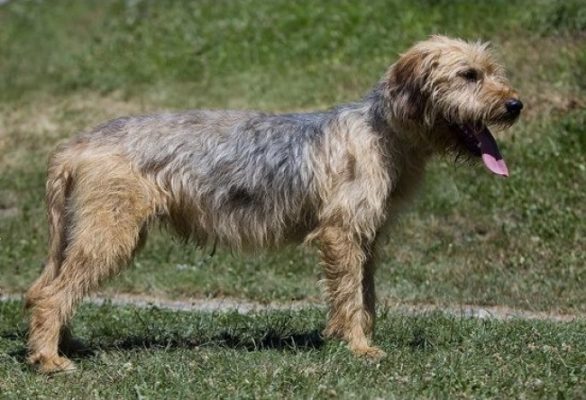
The Barak hound is not suitable as a pet for apartment living. The dog needs daily exercise. Representatives of the breed are attached to their owners, show affection and tenderness. Barak is suspicious of strangers. The animal works well in a group of other dogs and quickly navigates in any environment.
Table of Contents
Breed Information
| Another Name | Bosnian Broken-haired Hound, Bosnian Rough-haired Hound, Bosnian Rough-coated Hound, Bosnian Coarse-haired Hound, Bosnian Hound |
| Origin | Bosnia and Herzegovina |
| Height | Males 50-55 cm Females 46-53 cm |
| Weight | 16-24 kg |
| Fur | Long |
| Color | Wheat, gray, black |
| Lifespan | 12-14 years |
| FCI Classification | Scent hounds and related breeds |
| Group | Hunting dogs, dogs for children |
| Price | $1000-1500 |
Breed Photos
Origin History
The Bosnian Rough-coated Hound is the result of a cross between a greyhound and an Italian hunting dog. The breed originated in the early 19th century. The population of these dogs was affected by the conflicts of Bosnia and Herzegovina. Then the number of rough-haired hounds decreased significantly.
The breed was recognized by the International Canine Federation in 1965 but was called “Illyrian Hound”. The modern name these dogs officially received in 1973. The Kennel Club recognized the dog in 2006 under the name “Barak”. Barak means “stiff-haired dog” in Turkish.
Appearance
This breed has a long, coarse, ruffled coat. The hair has an undercoat. The color can be bicolor or tri-color. The color varies from wheat yellow to earthy gray. The hairs are black at the ends. White markings in the head, neck, tail, and lower extremities are common in the coloration.
The dog has a muscular build, and the tail tapers toward the end. The ears are medium length, wide, set high. The eyes are oval, dark in color.
Character
The Barak hound is not suitable as a pet for apartment living. The dog needs daily exercise. Representatives of the breed are attached to their owners, show affection and tenderness.
Barak is suspicious of strangers. The animal works well in a group of other dogs and quickly navigates in any environment. Without early socialization, the Bosnian hound is aggressive against other four-legged dogs.
Consider the dog’s hunting instincts – it perceives cats and small breeds of congeners as prey. The Bosnian hound should grow up with other pets.
Care
This breed requires minimal care. Thick hair should be combed 1-2 times a week. Otherwise, it will begin to tangle. During shedding, groom more often. Trim his claws if they are not sharpened during walks. Check his eyes and ears and get rid of dirt on time. Bathe your dog infrequently, as his coat becomes dirty.
Training
The Bosnian Rough-coated Hound is easy to train. This breed has a desire to please its master in everything. The Barak is a disciplined and obedient dog but can be stubborn. The Bosnian hound has a gentle, compliant disposition. The pet is easy to get along with children of all ages.
Start training your dog by familiarizing him with his surroundings. Allow your dog to walk with other animals, such as other four-legged congeners. Early socialization will help avoid conflicts in the future.
The next step is learning basic commands and strengthening the muscles. Take your pet for long walks and play active games. Give moderate exercise to all muscle groups. Then practice basic commands and move on to more advanced exercises. You won’t have any problems with the Bosnian Rough-coated Hound – this dog breed is docile to training.
Common Diseases
The body of this hunting breed easily tolerates adverse weather conditions. The dog’s health is good, but there are such common ailments:
- hip dysplasia;
- eye disease;
- dislocation of the kneecap;
- dysplasia of the elbow joint.
To avoid bone problems, monitor your dog’s musculoskeletal system from an early age. Thoroughly clean the eyes of accumulated dirt to prevent infection.
Nutrition
The Bosnian hound is unpretentious when it comes to nutrition. The dog can be fed with ready-made dry food and natural food. The main thing is that the diet contains all the necessary micronutrients. If your pet does not get them in sufficient quantities with food, buy special vitamin complexes.
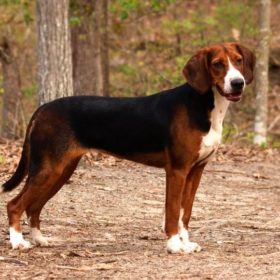 Hamiltonstövare
Hamiltonstövare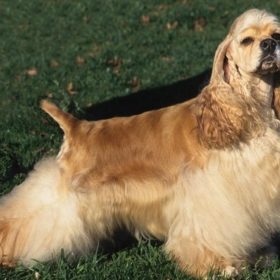 American Cocker Spaniel
American Cocker Spaniel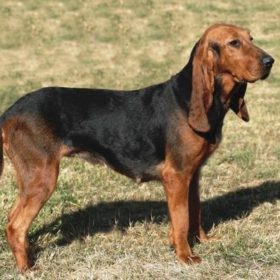 Bruno Jura Hound
Bruno Jura Hound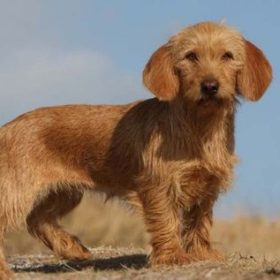 Basset Fauve de Bretagne
Basset Fauve de Bretagne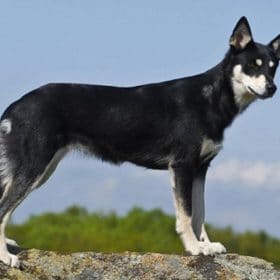 Lapponian Herder
Lapponian Herder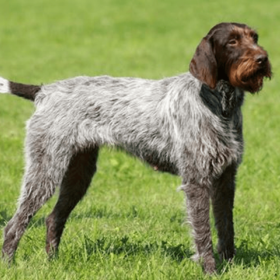 Český Fousek
Český Fousek